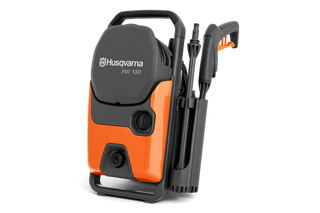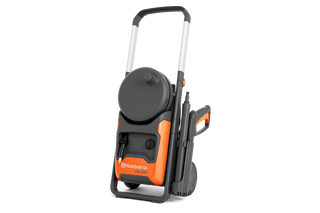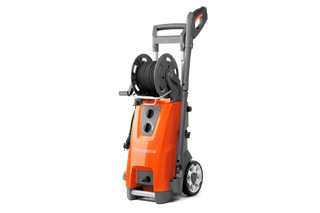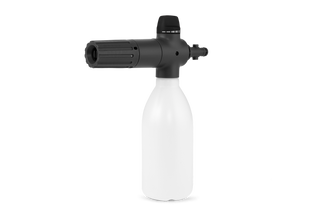How To Use A Pressure Washer
Pressure washers are powerful cleaning tools that have revolutionised the way to tackle tough cleaning jobs. Utilising high-pressure water jets, these machines can blast away dirt, grime, and stains from various surfaces, making them indispensable for both homeowners and businesses. Here’s an overview of how to use a pressure washer and just some of the common ways you can use one.
How Does A Pressure Washer Work?
- Water Supply: Firstly the process begins when you connect the garden hose to the pressure washer’s water inlet. The water flows through a filter and into the pump.
- Pressurisation: The pump, powered by an electric motor or gas engine, pressurises the water. The pump typically operates using a piston or axial cam mechanism. As the piston moves back and forth, it draws water into a chamber and then forces it out at high pressure.
- High-Pressure Discharge: The pressurised water is then forced through the high-pressure hose, which leads to the spray gun.
- Trigger Control:When you squeeze the trigger on the spray gun, a valve opens, allowing the high-pressure water to flow through the wand and out of the nozzle.
- Spray Pattern: The water exits the nozzle at high velocity, creating a powerful jet of water. The type of nozzle determines the spray pattern.
What to consider when buying a pressure washer?
Pressure Rating (PSI or Bar):
PSI (pounds per square inch) measures the pressure of the water stream. Higher PSI indicates more cleaning power.
Flow Rate (L/H):
L/H (litres per hour) measures the volume of water delivered. Higher L/H means more water is being used, which can improve cleaning efficiency.
It is also important to consider other factors such as the length of the hose and power cable, storage of the pressure washer and any accessories as well as the weight and portability of the machine.
Where can I use a pressure washer?
Cleaning Driveways and Pathways
Over time, driveways and pathways accumulate dirt, oil stains, algae, and mildew. A pressure washer can effectively remove these contaminants, restoring the original appearance of concrete, brick, and stone surfaces. This not only enhances its appearance but can also reduce the risk of slips and falls.
Washing Decking and Patios
Wooden decks and stone patios can become weathered and dirty. Pressure washers can strip away grime, mould, and moss, revitalizing these outdoor living spaces. For wooden surfaces, using a lower-pressure setting helps prevent damage while still achieving a deep clean. A high-performance surface cleaner can reduce the time to tackle a patio further covering a greater area even quicker.
Exterior Walls
Pressure washers are excellent for cleaning the exterior walls of homes and buildings. They can remove dirt, mould, and mildew from various surfaces, including vinyl, brick, and stucco. Regular cleaning of exterior walls not only maintains the aesthetic appeal but also extends the life of the building materials.
Vehicle Washing
From cars and trucks to boats and motorbikes, pressure washers can make vehicle cleaning quick and efficient. They can remove tough grime, mud, and salt, particularly from hard-to-reach areas like undercarriages and wheel wells. Use a detergent to help provide the perfect clean before using a gentle spray setting to ensure that paint and finishes are not damaged, .
Cleaning Outdoor Furniture
Patio furniture, including tables, chairs, and umbrellas, can become dirty and stained from exposure to the elements. A pressure washer can easily clean these items, making them look like new. This is particularly useful at the beginning and end of the outdoor season.
Gutter and Drain Cleaning
Clogged gutters can cause water damage to your home. Pressure washers, with the right attachments, can safely and effectively clear out leaves, dirt, and debris from gutters, ensuring proper water drainage. An angled spray lance can be an effective attachment to help clean hard-to-reach areas such as a gutter, while a specialised pipe cleaning attachment can help wash out narrow pipes or drains.













